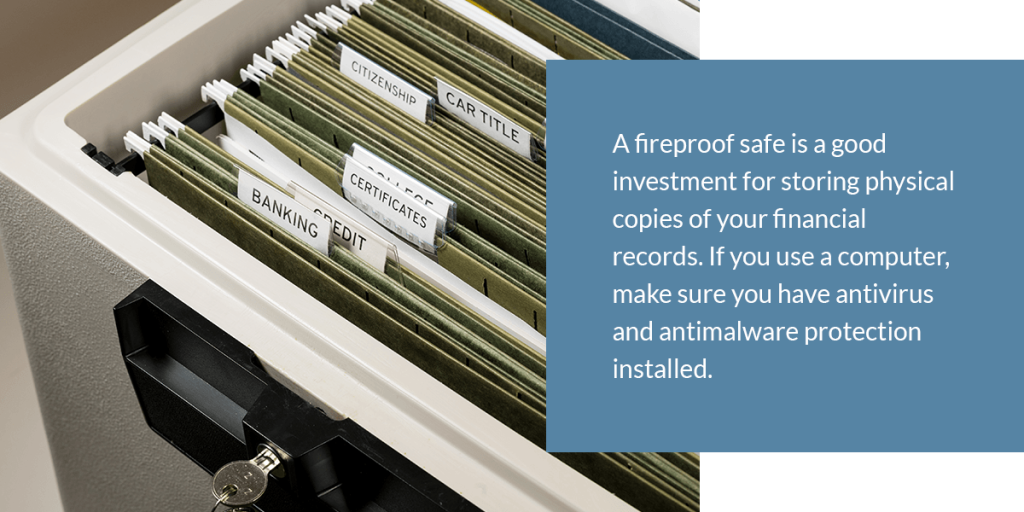
A question we often get from clients is how long should you keep your tax returns and other financial records. Like many other taxpayers, you might think that once you file your federal tax return, you can throw all of your tax documents away. This, unfortunately, is less than ideal for handling potential audits.
As a responsible taxpayer, you need to save your financial documents for at least three years after filing your tax returns. There are certain situations where you will need to keep your documents longer. Read more below:
The IRS has up to three years after you file your tax return to audit you and assess your earnings for additional taxes. This is known as the three-year rule. Three years is also the time limit for taxpayers to file an amended tax return.
You might feel like you are immune from an audit since you always pay your dues by the deadline, but anyone can be audited. The many tax rules and regulations mean that a mistake on your tax return is certainly possible, but you can be audited regardless. If you are audited within three years, the safest way to ensure that you submit the right records appropriately is by working with an accountant or tax attorney.
The three-year timeline begins once you file a federal return for the current year. Once you file a return:
The IRS can lose or misplace returns, but there is a retention limit on financial records. If you can prove that you filed your return, then the statute of limitations for an audit is set.
Store all original documents in a safe, secure location where you will easily remember to add content to each year. A fireproof safe is a good investment for storing physical copies of your financial records. If you use a computer, make sure you have antivirus and antimalware protection installed.

There are exceptions to the three-year rule. To avoid a scenario where the requested documents have already been purged, many business owners save all of their tax records. When determining how long to keep financial records, consider the possibility of an unexpected audit. Below are more details about exceptions:
These scenarios might sound irrelevant to your business or your personal finances, but each could lead to an audit of your distant financial history. It’s important to save your tax documents to protect your business, even if you are confident that you have paid all dues in a timely and efficient manner.
Fortunately, if you have lost your financial records, you can request the information from your accountant or tax preparer. If you filed yourself, you can request your records from the IRS directly by filling out the appropriate forms on their website.
Keep in mind that it will take a while before other parties can provide the requested information. Make sure you double-check all deadlines and ask for the records in enough time before the audit is due.
If you aren’t sure if the exceptions apply to you, then it’s best to keep all of your records. You can keep the tax returns digitally on a flash drive or a drive or a folder on your computer, or you can keep physical copies in a folder at home or at your workplace.
If you need help filing current or back tax returns, Polston can help! Our team of tax accountants and tax attorneys can help you file your returns correctly and help you take advantage of tax deductions you might not know about. Give us a call at 844-841-9857 or schedule your free consultation.